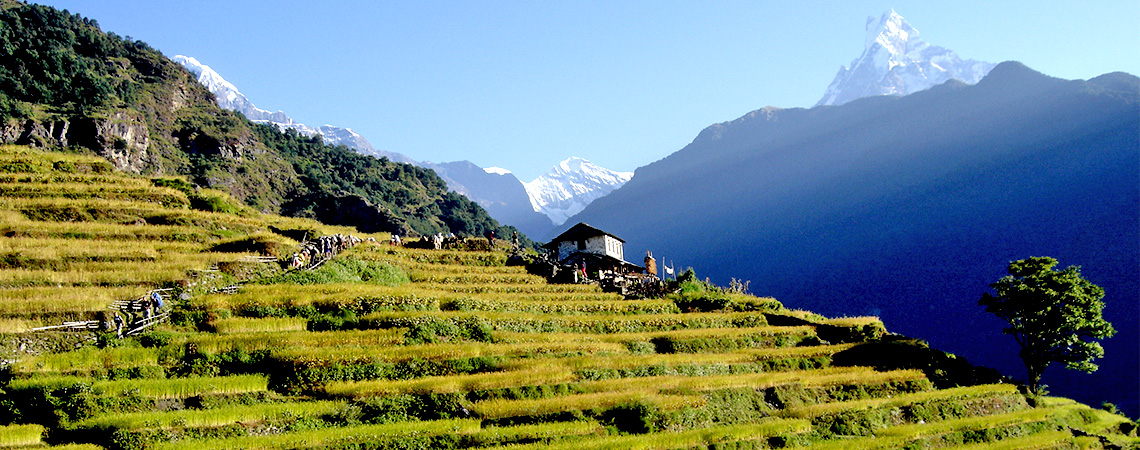Trekking Information
Trekking information: Accommodation & food, route condition, preparation & Safety
Accommodations & Food: Comfortable Simplicity in the Mountains
Nepal’s popular trekking regions are dotted with teahouses—basic yet charming lodges offering warm hospitality, simple rooms (usually twin-sharing), and hearty meals. These teahouses provide an authentic window into local life and culture, and while amenities are modest, they offer the comfort of a roof, cooked meals, and camaraderie with fellow trekkers.
In remote or less-developed trekking routes, camping treks are organized, complete with trained staff, kitchen crews, and porters. Meals on the trail typically include rice, lentils, noodles, potatoes, vegetables, soups, and occasionally meat. While the food is wholesome and filling, hygiene and safe preparation are top priorities on all Wind Horse Tours treks.
Physical Fitness & Prior Experience: Who Can Trek in Nepal?
Trekking in Nepal requires a moderate level of physical fitness, especially for multi-day treks in high altitudes. While prior trekking experience is not essential for many of the classic trails, being active and well-prepared will enhance your experience. For more strenuous routes, such as Everest Three Passes or Kanchenjunga Base Camp previous high-altitude trekking experience is recommended.
We tailor each itinerary to match your capabilities, and our experienced guides set a steady, manageable pace to ensure proper acclimatization. Training with regular walking, hill climbing, or cardio workouts before your trek is highly recommended. Incorporating stair climbing and hiking on varied terrain can further enhance your readiness for the diverse conditions encountered on the trail .
Health, Safety & Altitude Awareness
Your health and safety are our top priorities. All Wind Horse Tours treks are accompanied by knowledgeable guides trained in first aid, altitude sickness recognition, and emergency response. We maintain regular communication with our support staff and offer evacuation assistance when needed.
Altitude sickness (AMS) is a significant concern on high-altitude treks. Our itineraries are carefully designed to include gradual ascents, acclimatization days, and expert guidance. We advise all trekkers to stay hydrated, avoid alcohol, and report any symptoms of AMS early. It’s also important to avoid overexertion and ensure adequate rest, as fatigue can increase susceptibility to AMS .
Rescue Insurance
We strongly recommend purchasing comprehensive travel insurance that includes emergency evacuation by helicopter. In Nepal, helicopter rescues are often the only rapid means of descent from high altitudes in case of medical emergencies. Your insurance should specifically cover trekking activities up to your expected altitude.
Trail Conditions & Weather Considerations
Trail conditions in Nepal vary by region and season. Popular trails are generally well-marked and maintained, but weather—especially in the mountains—can change rapidly. Trails may include steep ascents, descents, stone steps, suspension bridges, and sometimes landslide or snow-affected areas.
The best seasons for trekking are spring (March–May) and autumn (September–November), offering stable weather, clear skies, and excellent mountain views. Winter treks are possible in lower altitudes, while Upper Mustang and Dolpo—being in the rain shadow—are ideal even during the summer monsoon months. [More details>>>]
Practical Precautions & What to Expect
While trekking in Nepal is safe and rewarding, it’s important to be mindful and well-prepared. Good quality trekking gear, layered clothing, sun protection, and sturdy footwear are essential. Always follow your guide’s instructions, respect local customs, and be aware of altitude limits.
At Wind Horse Tours, we promote responsible tourism—minimizing environmental impact, ensuring fair treatment of staff, and supporting local communities through our operations.
Packing & Gear Support
We provide detailed packing lists and gear recommendations for each trek. For those who prefer to travel light, gear rental options (like sleeping bags, down jackets, and trekking poles) are available in Kathmandu and Pokhara. We’ll assist you in getting properly outfitted before your journey begins.


 +1 612 869 4949
+1 612 869 4949